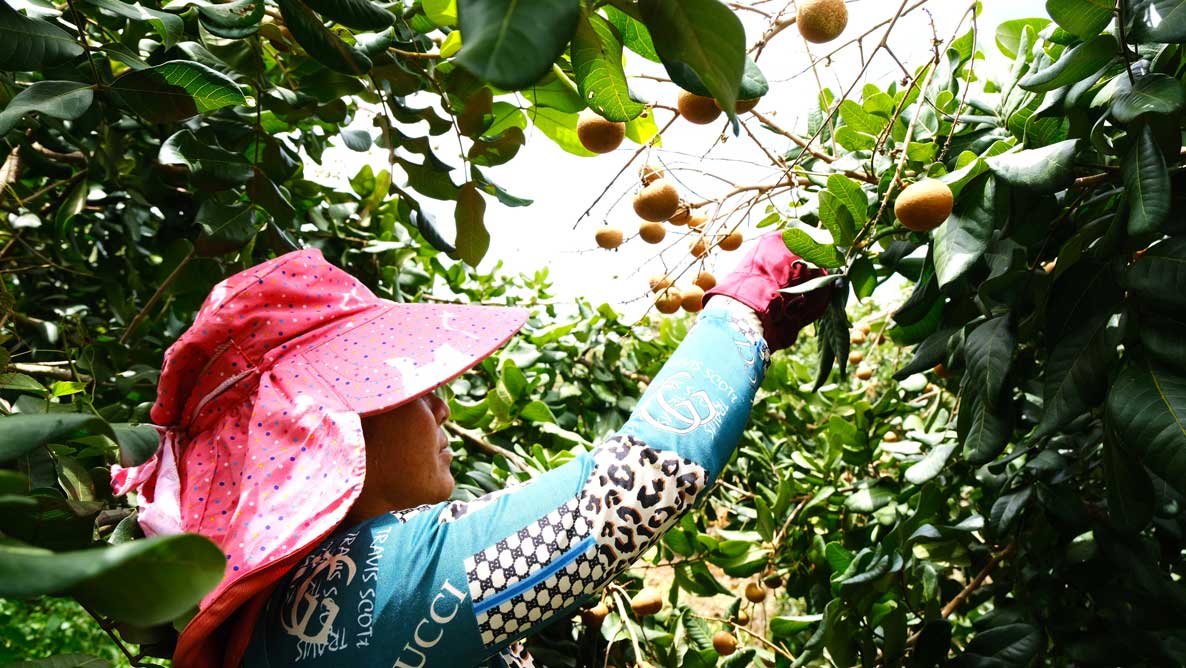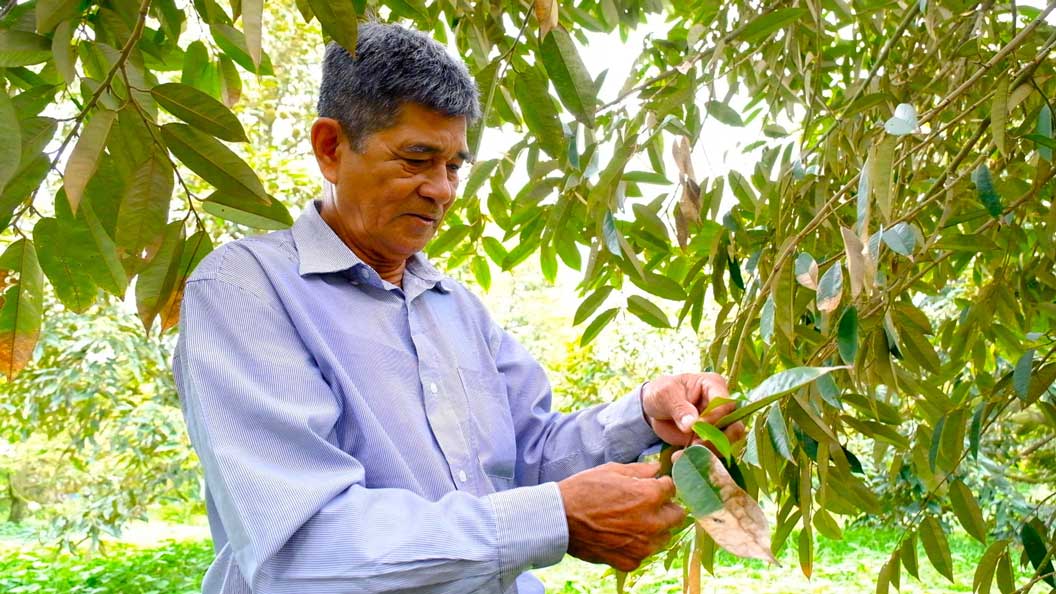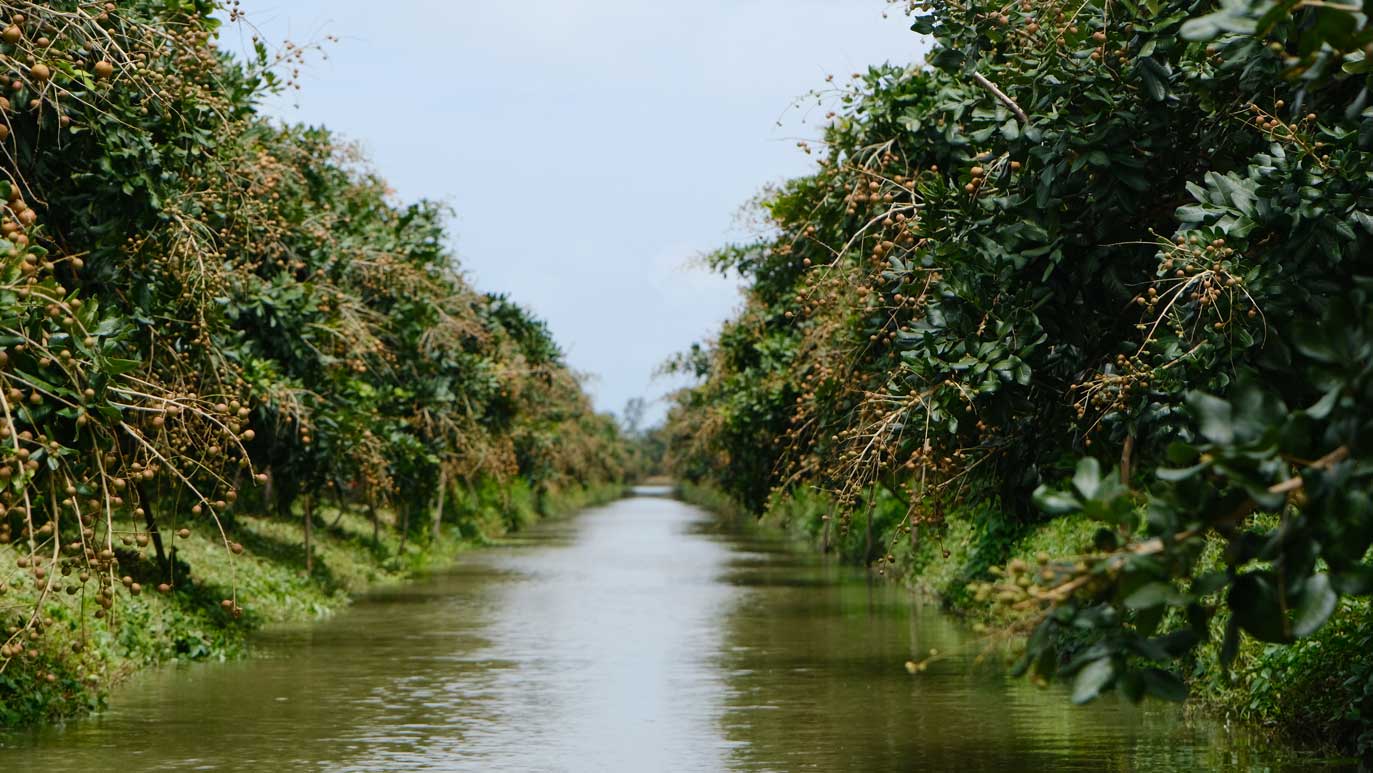Exploiting the domestic market
In the context of many fluctuations in the agricultural export market, fruit tree cooperatives in Can Tho have proactively changed direction. They exploit the potential of the domestic market, seeking new directions to ensure stable output and maintain the value of agricultural products.
At Trang Ti Garden Cooperative (Can Tho City), since the longan fruit was linked for export, its value has been increasingly enhanced. The income of members has also improved significantly. However, this does not mean that the cooperative forgets the domestic market.

With nearly 100 million people, Mr. Tran Phuoc Son - Director of Trang Ti Garden Cooperative - said that the domestic market still has a lot of room and potential to exploit.
For the domestic market, in addition to consumption for the merchant system and wholesale markets, the cooperative's label fruit is now present in large supermarket systems. This is an effort of the cooperative to expand the market for longan fruit, said Mr. Son.
Truong Khuong A Fruit Garden Cooperative (Can Tho City) has achieved many successes thanks to export linkages, helping the prices of key fruits increase significantly. However, domestic distribution channels still play an important role in the consumption of agricultural products by members.
Notably, since the beginning of this year, durian exports have encountered difficulties due to strict regulations on quality, plant quarantine and food safety and hygiene. In that context, the domestic market has become a "savior", reducing output pressure for cooperatives.

Mr. Tran Van Chien - Director of Truong Khuong A Fruit Garden Cooperative - shared: "In the peak crop, in addition to export channels, the cooperative has to sell to traders and wholesale markets to consume all the fruit. Although the selling price is lower, we always focus on the domestic market because this is an important and sustainable distribution channel.
Clean production is an inevitable trend
To conquer the domestic market, cooperatives consider product quality as a core factor. This forces cooperatives to change production thinking, towards clean and sustainable agriculture.
Mr. Son emphasized: To integrate and improve product quality, we understand that green - clean - safe production is an inevitable direction. And these products are not only for export but also serve the domestic market. Because domestic consumers are also increasingly demanding high-quality products for use".

Sharing the same view, Mr. Chien also said that domestic customers are increasingly interested in the origin, safety and quality of agricultural products. Although the price is somewhat higher, they are willing to spend money to enjoy delicious and clean fruits.
In order to meet increasingly high product quality requirements, we must proactively clean agriculture in accordance with VietGAP standards. Although it takes more effort, the products are trusted by consumers. Thanks to that, the selling price is kept stable and there is a sustainable outcome," Mr. Chien shared.
According to the Department of Crop Production and Plant Protection (Department of Agriculture and Environment of Can Tho City), the whole city currently has 102,194 hectares of fruit tree production area, with an output of nearly 860,000 tons in the first 8 months of the year. As of August 2025, Can Tho City has 579 growing area codes, with a total area of nearly 9,400 hectares. In addition to consumption through the purchasing system of traders, some collective economic organizations and farming households have linked and provided fruits to retail establishments in the city center.











